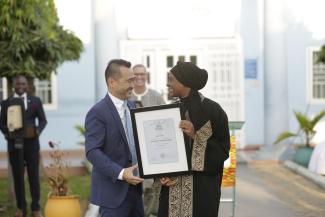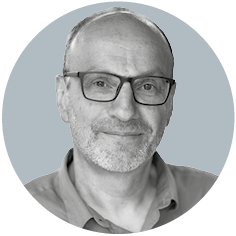Start-ups
“Talent is everywhere, but opportunity is not”

What does MEST Africa do exactly?
MEST’s work can be broken down into three pillars:
- The MEST Training Program is a one-year, fully sponsored, graduate-level programme in tech entrepreneurship in Accra. MEST Africa was built on the idea that talent is everywhere, but opportunity is not. We call our participants entrepreneurs-in-training and grant them a full scholarship for an MBA-type education (Master of Business Administration) with a focus on software development. It is an intensive hands-on programme led by a Pan-African staff with input provided by guest lecturers who are experts in their fields. A group of the continent’s most promising entrepreneurs is selected. The current cohort represents 14 countries across Africa. The programme focuses on the kinds of skills entrepreneurs need. The core topics are communications, business and technology.
- MEST Seed Funding: Graduates of the Training Program and winners of the annual MEST Africa Challenge competition are invited to pitch proposals to our board of experienced investors. The winners receive funding worth $ 50,000 to $ 250,000 to help them launch and scale their companies in one of our Pan-African incubators.
- We run MEST Hubs in four cities: Accra, Lagos, Nairobi, and Cape Town. They serve as ecosystem centres for entrepreneurship. Currently, they provide services to more than 50 start-ups. This includes on-the-ground support, mentorship and a global network.
How many men and women are enrolled?
About one-third of the current 56-person cohort is female. MEST plans to run a female-targeted Bootcamp to apply for MEST and we are aiming for parity for the next MEST Training Program cohort.
How does one join your training programme?
Our target group is aspiring entrepreneurs from across Africa. First, they submit an application through our online portal. Successful applicants move to take a skills assessment test to evaluate their strengths and further filter down the pool. After qualified applicants pass the skills assessment there are rounds of phone and group interviews until we narrow down to one-on-one interviews. Typically about 50 to 100 applicants get to this final stage. During the one-on-one interview, applicants spend between 30 to 45 minutes with the judging panel. The panel asks questions about the applicant’s CV, profile and experience. Every year in August, MEST admits up to 60 new entrepreneurs-in-training.
What happens after graduation?
Entrepreneurs-in-training join MEST with a drive to create a tech start-up. Whether in social or traditional sectors, the companies they create address particular needs. They strive to create productive disruption. Graduates have launched companies all over Africa. We want to support globally successful companies that can create wealth and generate jobs in Africa. Not all graduates get seed funding, but those who do not often go on to make a difference as managers and leaders in their various sectors nonetheless. We consider all alumni part of the MEST family and regularly encourage them to come back and pitch any ideas for funding in the future. One of our mottos is: “Once a MESTer, always a MESTer”. All alumni have access to our vast network of mentors, alumni and partners.
How did MEST come about – and why is it based in Ghana?
MEST was launched in 2008 by Meltwater founder and CEO Jorn Lyseggen as a Pan-African training programme, seed fund and tech hub. MEST is funded by the Meltwater Foundation, the non-profit arm of Meltwater, a global leader in media intelligence. The idea was that, with the right support and guidance, people can achieve great things, and that young Africans, in particular, must be offered more and better opportunities. We have shown that a new generation of young, successful, globally-minded software entrepreneurs can originate in Africa.
Veronica Mulhall is the head of marketing at MEST Africa and is based in Accra.
veronica@meltwater.org














